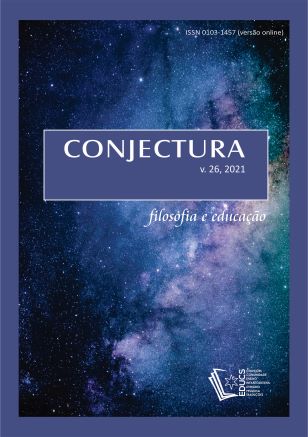The government of itself, the others and the souls: a brief study about disciplinary techniques
Abstract
The present article proposes an analysis of the foucauldians studies concerning the disciplinary techniques and its relation with the government of individuals and collectives conducts. To this end, this article focus in demonstrated, throughout the works “Discipline and Punish: The birth of the prison (2008)”, “The order of discourse (2010)”and “Micro-physics of Power (2013)”, how the discipline, understood as a technology of power, operates in the conduct of the subject practices (government of conducts).Thus, we will follow an analytical path of differentiation of the both uses of the term discipline found in the theorizations of Michel Foucault: one in the way of the knowledge, thenceforth the control of the discourses formation (hierarchy and pedagogy of the knowledge’s) which configures the acting of a power that exercises itself as a discursive restrictor in order to maintain the regulation and control of what can be said and though in certain time. The other use, constituted in the scope of the power, in which the disciplinary power acts specifically in the bodies as a group of techniques engendered in the subjects’ fabrication. Therefore, the main objective outlines in present the discipline as a technology of the power the works as an machinery of the government of conducts, highlighting its forms of operation in the fields undertaken by Foucault, of the know and the power, following his genealogic triad of investigation. The article still intends to explore the foucauldian understanding that the discipline and the disciplinary techniques are configured as an ingenious machine that come together in the fabrication of the human, being required to understand them not only through the repression categories, oppression and alienation, like much has been done and continues to be made. Accordingly, the French philosopher will provide us an understanding of this technology of power as a machinery that productive says yes, much more than it says, no (2013, p. 350)References
CASTRO, E. Vocabulário de Foucault. São Paulo: Autêntica, 2009.
EWALD, F. Foucault, a norma e o direito. Lisboa: Vega, 1993.FOUCAULT, M. Vigiar e punir: nascimento das prisões. Trad. de Raquel Ramalhete. 35. ed. Petrópolis, RJ: Vozes, 2008.
FOUCAULT, M. A ordem do discurso. 20. ed. São Paulo: Edições Loyola, 2010.
FOUCAULT, M. Microfísica do poder. 26. ed. São Paulo: Graal, 2013.
FOUCAULT, M. O governo de si e dos outros: cursos no Collège de France (1982- 1983). Trad. de Eduardo Brandão. São Paulo: WMF Martins Fontes, 2010.
MACHADO, R. Prólogo. In: FOUCAULT, M. Microfísica do poder. 26. ed. São Paulo: Graal, 2013.
VARELA, J. O Estatuto do Saber Pedagógico. In: SILVA, T. T da. O sujeito da educação: estudos foucaultianos (org.). 6. Ed. Petrópolis, RJ: Vozes, 2008.
VEIGA-NETO, A. Foucault e a educação. Belo Horizonte: Autêntica, 2007.
Published
How to Cite
Issue
Section
License
1. The publication of the originals will imply the assignment of copyright to Conjectura Journal.
2. Texts cannot be reproduced without authorization from the Journal after acceptance.









